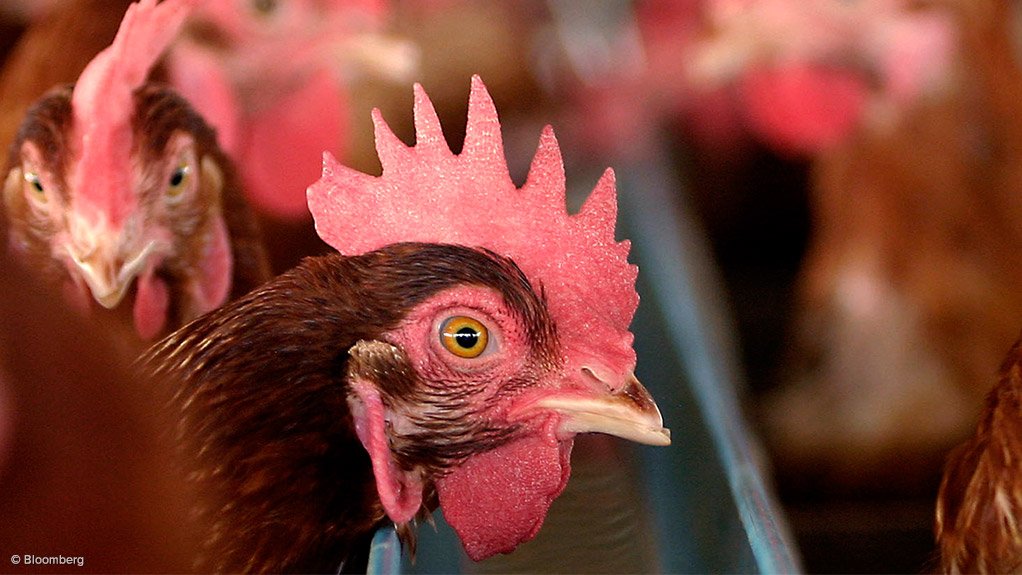During the Trade and Investment Framework Agreement (TIFA) Council meeting in Washington, in the US, last week, South Africa and the US strengthened and deepened their bilateral trade and investment relations.
The meeting was co-chaired by Trade and Industry Minister Dr Rob Davies and the US Trade representative (USTR) Ambassador Michael Froman.
The revised TIFA was signed in 2012 and was a key platform to discuss issues of bilateral concerns and boostbilateral trade and investment relations.
Despite two influential US senators, central to the so-called ‘chicken war’, announcing their intention to pursue amendments to the Africa Growth and Opportunity Act (Agoa) to secure greater access for US poultry into the South African market, South Africa and the US would continue to enjoy a cordial and growing trade and investment relationship, the Department of Trade and Industry (DTI) said.
Davies and Froman had “fruitful and constructive discussions” on Agoa, outstanding market access issues and the investment climate, as well as issues on the multilateral trade agenda.
CHICKEN WAR
Earlier this month, Senators Chris Coons and Johnny Isakson said in a statement sent to Fin24 that they passionately believed in Agoa’s value and supported its long-term renewal, but believed it unfair and inappropriate that the country that benefits from the law the most – South Africa – continued to maintain unreasonable tariffs on US poultry.
The two senators, who represented chicken-producing states, had, in the past, threatened to block South Africa from the lucrative Agoa trade agreement if the government failed to lift import duties on cheaper cuts of chicken.
In the US, white chicken meat (chicken breasts) was sold at premium prices owing to market demand. Bone-in chicken was a surplus product, which allowed the US to enter the local market with cheaper prices.
South Africa had imposed antidumping tariffs of above 100% since 2000 on certain products derived from the chicken carcass.
Davies committed that South Africa would work towards concluding the poultry discussions soon. The same message was communicated in his meeting with Coons and Isakson.
The proposed deal would see US chicken bone-in cuts exports being restored to their value prior to 2000 with a growth factor, taking into account current dynamics in the South African market.
The outstanding issue was for the poultry associations from both sides to agree on the quantity of US chicken for which antidumping duties would be excluded.
Davies appealed to the US to engage its poultry industry to also show flexibility in the negotiations so that the outcome was reasonable and was a volume that both parties could agree on.
The South African and US poultry associations met earlier this week on the margins of International Egg and Poultry meetings in Europe. It was expected that the South African Poultry Association (SAPA) would table an improved offer that would likely lead to a deal being finalised.
Both Davies and Froman agreed to continue to encourage their respective poultry industries to find “the sweet spot”, while committing to resolving other outstanding issues of concern from both sides in the shortest possible time.
BUSINESS ROUNDTABLE
The TIFA Council meeting also noted growth in investment relations and committed to work together in continuing to improve the business and investment climate in the two countries.
The private sector associations also had an opportunity to present their outcomes to the TIFA meeting. A South African business delegation led by Business Unity South Africa CEO Kanyisile Kweyama participated in the business roundtable. US Chamber of Commerce VP Scott Eisner and Commerce and Corporate Council on Africa president Stephan Hayes led the US business delegation.
Following the conclusion of the TIFA Council meeting, the Senate Finance Committee and the House Ways and Means Committee, introduced the Agoa Extension and Enhancement Act of 2015, proposing reauthorisation of Agoa, including South Africa.
It also proposed the extension of the third country fabric provision for ten years. The Bill was not finalised, as it still needed to be taken through Congress for approval and then signature by President Barack Obama.
The Bill also introduced some conditionalities that would allow the US to review South Africa’s eligibility at any time.
South Africa, together with other sub-Saharan Africa countries, would continue reaching out to members of congress for timely renewal of Agoa for all eligible countries, said the DTI.
EMAIL THIS ARTICLE SAVE THIS ARTICLE
To subscribe email subscriptions@creamermedia.co.za or click here
To advertise email advertising@creamermedia.co.za or click here











